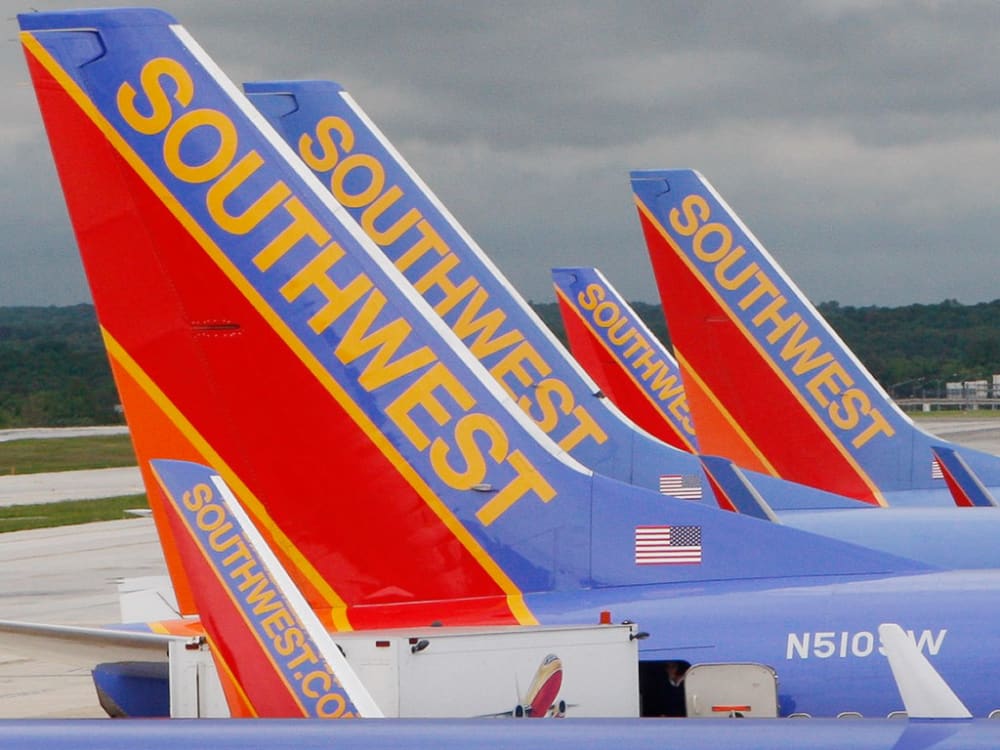But tension in the air
Houston City Council approves Southwest bid for Hobby expansion in lopsided vote
 Photo by Charles Dharapak/AP
Photo by Charles Dharapak/AP Southwest Airlines CEO Gary Kelly addressed the council upon approval of theproposal.Photo by Whitney Radley
Southwest Airlines CEO Gary Kelly addressed the council upon approval of theproposal.Photo by Whitney Radley A crowd of enthusiastic Southwest employees and supporters packed the HoustonCity Council chambers.Photo by Whitney Radley
A crowd of enthusiastic Southwest employees and supporters packed the HoustonCity Council chambers.Photo by Whitney Radley United Airlines employees, whose jobs may be jeopardized by the approval ofSouthwest's proposal, were also present.Photo by Whitney Radley
United Airlines employees, whose jobs may be jeopardized by the approval ofSouthwest's proposal, were also present.Photo by Whitney Radley
The end has come in the contentious Southwest Airlines saga: In a divided room, packed to capacity, the Houston City Council overwhelmingly approved the Dallas-based airline's proposal for international service out of William P. Hobby Airport.
The Southwest side of the audience — the chamber was almost evenly divided between United and Southwest proponents — and council members joyously applauded the lopsided 16-1 vote (council member Jerry Davis, whose district surrounds George Bush Intercontinental, dissented). But the two preceding hours of debate felt like a tense break-up, with each council member, in turn, addressing United Airlines executive vice-president of government and corporate affairs Nene Foxhall.
The two preceding hours of debate felt like a tense break-up, with each council member, in turn, addressing United Airlines executive vice-president of government and corporate affairs Nene Foxhall.
"It's not you," the council members essentially said. The issue, they insisted, was never a Southwest vs. United one, but rather a decision that ultimately boils down to business competition, customer convenience and a successful Houston Airport System.
Foxhall said that United will do its best to mitigate job losses and relocation efforts that may arise from the decision to go forth with Southwest's proposal.
"We are proud of what we and our workers have built with your support at Intercontinental," Foxhall told the city council.
After the council's resounding approval, Southwest CEO Gary Kelly addressed the body. "We are delighted to get to work and move forward on this," he said.
Southwest's recent agreement to foot the $100 million gate expansion bill (with preferential access to four out of five gates and a rent-free lease for 25 years) had a significant effect on the council's overall decision.
However, some skepticism remains: Council member Mike Laster voiced concerns about the decision and its possible effect of reversing 45 years or more of aviation policy.
Several other council members echoed Laster's concerns — so, though the proposal has passed, it seems that the issue is far from over.

 The newly opened Totally Tejano Hall of Fame and Museum includes a growing collection of memorabilia. Photo by Edmond Ortiz
The newly opened Totally Tejano Hall of Fame and Museum includes a growing collection of memorabilia. Photo by Edmond Ortiz